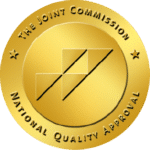Learning about your personal triggers, developing the ability to breathe through discomfort, and creating a mindfulness based lifestyle in recovery can be lifesavers in both early sobriety and throughout the rest of your life. Here are 6 mindfulness based relapse prevention techniques to help you gracefully maneuver your way through life, sober.
- Become acutely aware of personal triggers and blind reactions. Learning what makes you tick, and ticked off, is essential to living a life of recovery. The more you learn about your triggers, the more of a chance you have in achieving long-term sobriety.
- Learning to pause, think, and feel through reactions, before acting out. Finding out how you can create that extra moment in between reacting and responding in situations can transform a potentially heartbreaking or upsetting response into an opportunity to both truly connect with another and to be proud of your new way of interacting and responding to life.
- Develop the ability to experience discomfort without self-medicating. Learning to be with and sit through tough and uncomfortable sensations in your body is a vital tool for thriving in recovery. Learn breathing techniques and mindfulness exercises to help you process these uncomfortable times is essential.
- Become skillful at making non-addictive behavioral choices. Learn to differentiate between things that will help and support you in your life and goals, and things that may harm you or set you back in your life and goals.
- Have non-judgmental compassion towards self and other when struggling. Learning to first have compassion and love towards yourself enables you to extend the same support to others.
- Build a mindful lifestyle, including mindfulness and meditation, to support a life in recovery. Incorporating short, practical tools into your daily routine (even when things are going well) offers ongoing support for both the mind and the emotions in recovery. Then, when a difficult situation arises, you will have already been practicing the helpful tools you will use.Try to incorporate some of these mindfulness practices into your routine as you find yourself having more and more willingness and energy. By self-reflecting and practicing self-care, we send messages to ourselves that we are worth it, and that being in recovery is a worthwhile and lifesaving adventure.





